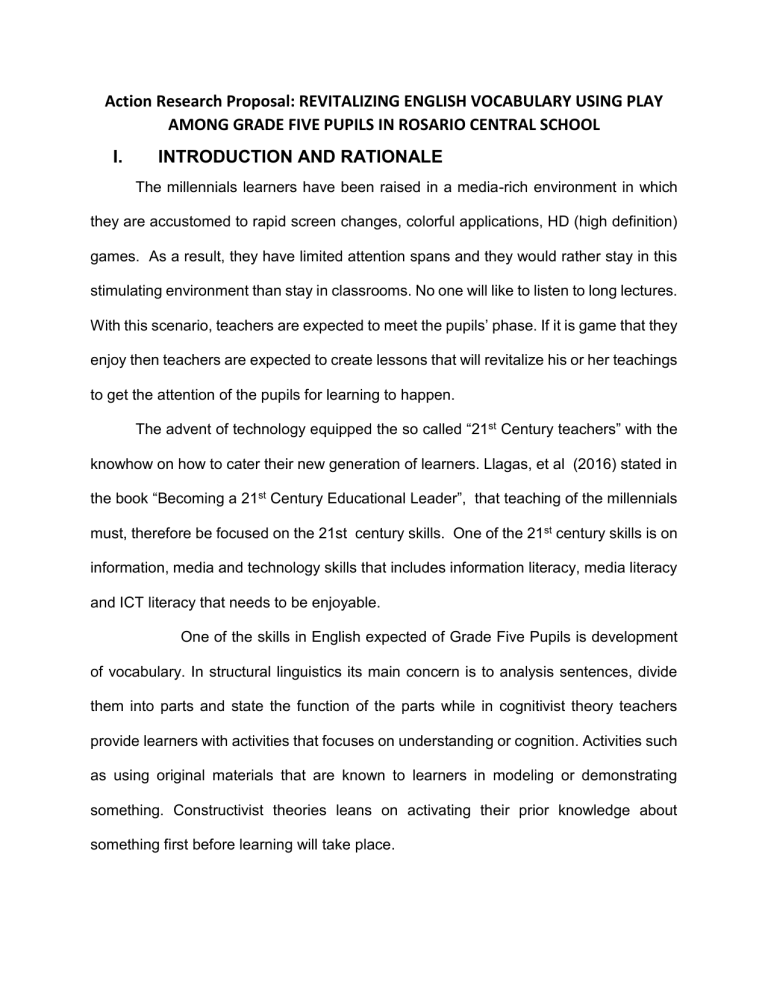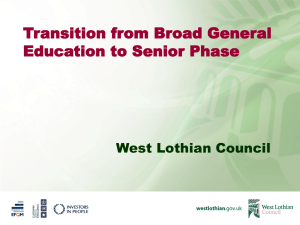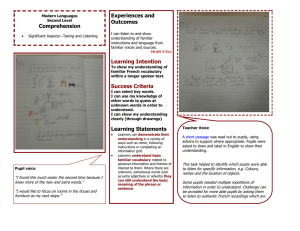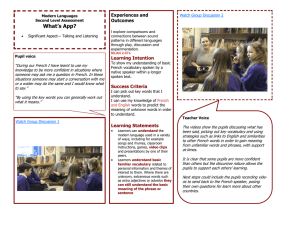Uploaded by
Maria Kyrin Acildo
Revitalizing Vocabulary with Play: Action Research Proposal
advertisement

Action Research Proposal: REVITALIZING ENGLISH VOCABULARY USING PLAY AMONG GRADE FIVE PUPILS IN ROSARIO CENTRAL SCHOOL I. INTRODUCTION AND RATIONALE The millennials learners have been raised in a media-rich environment in which they are accustomed to rapid screen changes, colorful applications, HD (high definition) games. As a result, they have limited attention spans and they would rather stay in this stimulating environment than stay in classrooms. No one will like to listen to long lectures. With this scenario, teachers are expected to meet the pupils’ phase. If it is game that they enjoy then teachers are expected to create lessons that will revitalize his or her teachings to get the attention of the pupils for learning to happen. The advent of technology equipped the so called “21st Century teachers” with the knowhow on how to cater their new generation of learners. Llagas, et al (2016) stated in the book “Becoming a 21st Century Educational Leader”, that teaching of the millennials must, therefore be focused on the 21st century skills. One of the 21st century skills is on information, media and technology skills that includes information literacy, media literacy and ICT literacy that needs to be enjoyable. One of the skills in English expected of Grade Five Pupils is development of vocabulary. In structural linguistics its main concern is to analysis sentences, divide them into parts and state the function of the parts while in cognitivist theory teachers provide learners with activities that focuses on understanding or cognition. Activities such as using original materials that are known to learners in modeling or demonstrating something. Constructivist theories leans on activating their prior knowledge about something first before learning will take place. In teaching vocabulary one must go deeper that the structure of a word. Making then spell a word is the first step. Familiarizing with the sequence of the letter but the most important is giving the meaning of the word. Base on the results of the First quarter MPS English in Grade Five of Rosario Central School is one of the lowest and vocabulary development is one of the least learned competency. Based on the informal observation by the English teacher it is evident that lack of interest in words or vocabulary is the reason for it. Thus, this action research was created. This research also leans on the theories of Montessori approach in teaching. is a method of education that is based on self-directed activity, hands on learning, using their senses, mostly the sense of touch to feel the object and collaborative play. In Montessori classrooms children make creative choices, it is an actual doing the activity. The “Learning by doing” approach also by John Dewey will be utilized. II. LITERATURE REVIEW III. ACTION RESEARCH QUESTIONS This action research aimed to rejuvenate vocabulary development trough PLAY among Grade Five Pupils I Rosario Central Elementary School. Specifically, it sought to answer the following questions: 1. Can PLAY enhance the vocabulary among Grade Five pupils in Rosario Central School? 2. Does PLAY helped in increasing the Grades of Grade Five Pupils in English that will increase the quarter’s MPS? 3. Can PLAY improve the pupils’ interest in developing their vocabulary skills? IV. V. SCOPE AND LIMITATION RESEARCH METHODOLOGY a. Sampling b. Data Collection c. Ethical Issues d. Plan for data analysis VI. TIMETABLE VII. COST ESTIMATES VIII. PLANS FOR DESSIMINATION AND ADVOCACY IX. REFERENCES X. INNOVATION, INTERVENTION, AND STRATEGY PLAY is P-paper folding (origami),L-lay out, A-artistry, Y-youthfulness 1. BINGO CARDS 1. Bingo Cards 2. Mix and Match 3. Origami 4. Find the word Cut, glue and name it Game 5. Fill-in the blanks 6. Word Alphabet Pupils will find a partner. They will use paper rock to choose who will play first. The chosen one will use her pen to find the letter. When the letter is chosen they will use 10mseconds to think of a word in every category. 7. WORDS AND LADDER 8. CAMERA WORD Research Design This study will utilize Technical Action Research Design because the researcher will use materials like bingo cards, origami patterns, pictures, puzzle, maze, tracing papers, and board games that are from existing practices already.





